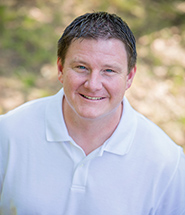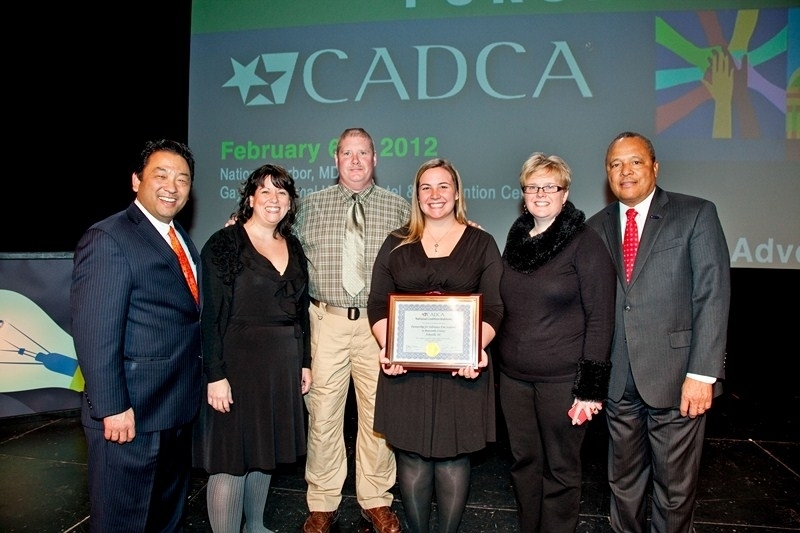Western North Carolina has not escaped the opioid epidemic that rages across the United States or the broader problems of substance abuse. According to the recently released U.S. surgeon general’s report on addiction, roughly 8 percent of the American population met the criteria for a substance use disorder, defined as the use of alcohol, illicit drugs or prescription drugs in a manner, situation, amount or frequency that could cause harm to the user or those around them. The Asheville area is no exception. In Madison County, for example, 42 medication or drug overdoses were reported just last year.
“After significant data collection and analysis, we determined that Madison, like many other counties in our region, was greatly impacted by the effects of an opioid epidemic,” says Heather Sharp, director of the Madison Substance Awareness Coalition. The overdose report comes from NC Detect, a statewide surveillance system created by the N. C. Division of Public Health, she explains. “While MSAC is concerned with all substance areas, we have focused much of our prevention initiatives on prescription medication and opioid education,” says Sharp.
In 2014, she joined seven other area health leaders to form what became the Madison Substance Awareness Coalition. MSAC addresses substance issues specific to Madison County, but the team quickly grew and now includes an active group of over 25 partners from multiple sectors, such as law enforcement, schools, health providers, faith community, media, local government, businesses, civic organizations, parents and youths.
“Substance use is not just a problem for the person struggling with dependency,” says Sharp. “It impacts the whole family, often resulting in loss of employment, legal issues and involvement with the Department of Social Services. The impact on the community is felt as well, as these individuals are our friends, neighbors, parents, children, spouses, people we work with and go to church with. In Madison County, we take pride in taking care of our own,” she says.
“So MSAC is spreading a message of hope and encouragement and calling for all community members to get involved,” she says.
Education and Awareness
Substance abuse in America has historically been viewed as the responsibility of existing social infrastructures, such as individual homes, places of worship, schools and civil courts or criminal justice systems. But despite vast efforts and expenses on these fronts, substance use remains one of the nation’s most dire issues, one with wide-ranging effects. The Centers for Disease Control and Prevention, for example, cites the spread of infectious disease, increased chances of heart and liver disease, loss of productivity, reduced quality of life, increased crime and violence, increased motor vehicle crashes, domestic abuse and increased health care costs as just a few of these negative effects.
The cumulative impact that all of this imposes on the physical, mental and social well-being of both individual and community is staggering, and calls for a new, health- and wellness-centered approach to the widespread issue.

“The public often views addiction and substance abuse as moral issues rather than health concerns,” says Brad Wilkerson, chief operating officer at the South Asheville outpatient center Legacy Freedom Treatment Center. “The truth of the matter is that substance use disorders are in fact disorders, which can involve a number of underlying biological and environmental factors, and which can be overcome with proper education, therapy and personalized treatment,” he says.
According to the surgeon general’s report on substance abuse and addiction in America, 66.7 million people in the U.S. reported binge drinking in 2015, and 27.1 million people were current users of illicit drugs or misused prescription drugs. Yet the report notes that only an estimated 10 percent of this population sought and received proper treatment services for substance abuse.
“Education and awareness are key here,” says Wilkerson, whose own personal experience with addiction led him to be a voice for improved substance use disorder care. “Oftentimes early-onset substance abuse disorders are not screened for, not diagnosed, and therefore not eligible to receive treatment.”
This is a problem, especially for adolescents and teens who, according to the surgeon general’s report, represent the most critical demographic of those at risk for substance use and abuse. Moreover, research from the nonprofit National Center on Addiction and Substance Abuse indicates that 90 percent of people who develop a substance use disorder began using substances before the age of 18.
Innovative approaches
Wilkerson says the standard approach to drug and alcohol prevention among adolescents isn’t working. “This is an issue that needs to be talked about more, and more openly, with kids,” he says. “Clearly, the old ‘Just Say No’ model isn’t feasible. Drugs and alcohol are easily available, but these kids are rarely educated to the dangers of use or how quickly casual use can turn into a disorder. Lecturing just isn’t going to cut it. We have to think of new, insightful ways to change the old model.”
Lindsay Stockman, prevention coordinator for the nonprofit RHA Prevention Resource Center, agrees. “Everything we do at RHA is evidence-based,” she says. “There has been research done; it has been tested, it has been piloted, and effective outcomes have been observed.” Working closely with schools across 12 counties in the state, the center offers a number of programs on prevention and early intervention that fit into class curricula.
One of the most popular of these prevention programs is Project Venture. Conducted in the classroom as well as outdoors, the strength-based, experiential youth development program aims to foster the kind of social and emotional competence needed to resist substances among fifth- to eighth-graders, Stockman explains.
“This one is really popular with the kids,” she continues. “They love the outdoor adventure aspect of it, and we are seeing some great results, though what we’ve really learned from this and other evidence-based programs is that scare tactics and lecturing don’t work when it comes to connecting with youth on substance abuse and prevention. We try instead to use both education and interaction. It’s important to work with the kids and learn from them by talking about their honest feelings toward substances and finding out what works and what doesn’t.”
Community effort
For RHA and other community partners, staying ahead of the curve on prevention methods doesn’t stop with schools. Efforts are being made locally and nationally to move substance abuse prevention and treatment into the realm of community health. “There is now a shift across the nation for health care professionals working with substance use and misuse,” says Stockman. “In-school and after-school programs are still being utilized, but more and more we’re seeing a move toward work with the community as a whole.”
RHA is helping to galvanize this movement in Buncombe County with the Partnership for Substance Free Youth, a coalition made up of at least 12 sectors, including schools, local businesses, law enforcement and parents.
“The purpose of the partnership is to look at the issue of prevention of and treatment for substance misuse as a whole,” says Stockman, “and to get the community to come together around the full continuum of health in this area. That is a public health approach, and that is what we are trying to contribute to.”
Mental-physical connections
Samantha Osborne agrees that bringing community health to the forefront is paramount to combating substance abuse. The intake coordinator for outpatient treatment services provider October Road notes how new research on addiction and addiction therapies is helping to pave the way for a positive shift in both prevention and recovery from substance abuse.
“There has historically been a social stigma against addiction and substance problems, and the same is true with mental illness,” says Osborne, “but with more research and more understanding on the various risk and protective factors involved in these related issues, the stigma is beginning to lift. The public is beginning to understand that the proper response here is treatment and not punishment.”
In an effort to emphasize the connection between mental health, physical health and substance abuse, October Road offers programs to those with substance-related offenses or substance use disorders as a step in early intervention or as a precursor to more intensive treatment.
ADETS/Prime for Life, an education-based counseling class, is one such program. “The class highlights the effects on the brain and body that substances can have,” says Osborne, “and provides critical information to individuals such as DUI offenders on healthy drinking patterns, what might be considered unhealthy use and how to seek additional services if they think there is a potential problem present.”
Forward-looking
The surgeon general’s report indicates that the efforts of health care professionals and nonprofits are working with some populations. For example, trends with middle-school-aged adolescents are showing a gradual decrease in illicit drug use and binge drinking reports. But other work remains to be done, say area health leaders.
As Wilkerson notes, “It seems like we are on our way to finding a solution with changing attitudes toward addiction and recovery. There is so much being done on this front, but there’s a lot more to be done before we can say that we have solved the problem of substance misuse.”
More Info
Madison Substance Awareness Coalition
Legacy Freedom Treatment Center
legacyfreedom.com
RHA Prevention Resource Center
rhaprevent.org
October Road, Inc.
octoberroadinc.net




Before you comment
The comments section is here to provide a platform for civil dialogue on the issues we face together as a local community. Xpress is committed to offering this platform for all voices, but when the tone of the discussion gets nasty or strays off topic, we believe many people choose not to participate. Xpress editors are determined to moderate comments to ensure a constructive interchange is maintained. All comments judged not to be in keeping with the spirit of civil discourse will be removed and repeat violators will be banned. See here for our terms of service. Thank you for being part of this effort to promote respectful discussion.